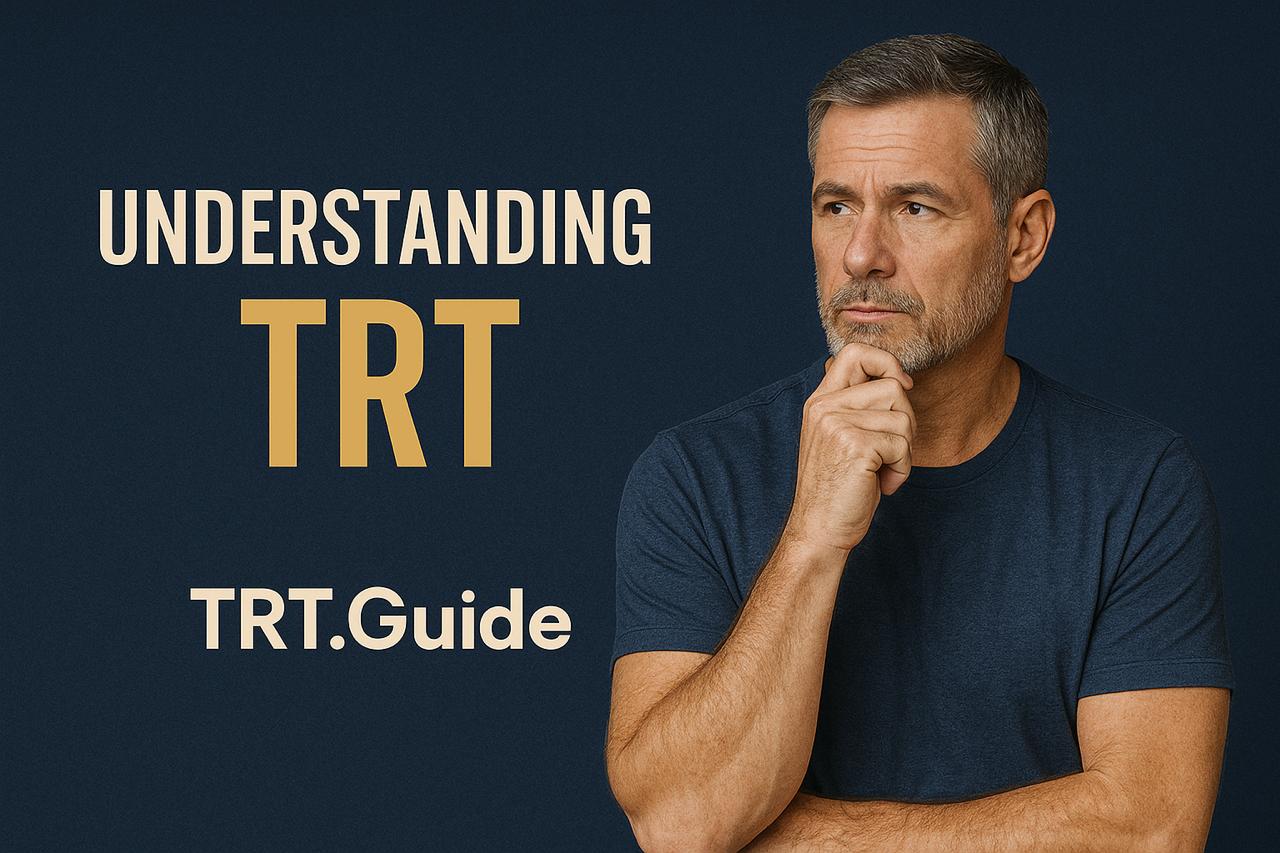Ending testosterone therapy needs careful thought. If you have side effects or life changes, it’s vital to know the effects of stopping treatment. It’s not just about quitting; knowing your hormonal levels is crucial for health.
First, understand the effects of stopping testosterone therapy. The body may feel physical changes, and moods may swing. Knowing this helps manage these changes. Let’s look at what to keep in mind when facing this big decision.
Understanding Testosterone Therapy
One of the methods of increasing the testosterone level in males is through testosterone therapy, also known as the treatment of hypogonadism that occurs when levels are low. Through this procedure of treatment, it is expected that hormonal balance will be restored, energy will be increased and a good quality of life will be maintained.
What Is Testosterone Therapy?
Testosterone therapy is a variety of methods such as injections, patches, gels, and pellets which are aimed at increasing the testosterone levels in the body. You can opt for this method of treatment to relieve the signs and symptoms related to testosterone deficiency such as tiredness, depressed mood, and reduced libido. The diagnosis is established when blood tests confirm low levels of testosterone in the patient. Regular monitoring of hormone levels and general health conditions becomes a requirement while you are pursuing the treatment so that positive results will be maximized, and risks of adverse effects will be minimized.
Reasons for Taking Testosterone Therapy
Normally, patients may enroll in the process of testosterone therapy due to several reasons:
- Boosting Energy Levels: A lot of people declare that their energy and vigor have been rising, consequently they’ve become capable of handling tiredness which was always the outcome of low hormone levels.
- Upping Sexual Drive: Therapy allegedly may result in a higher sexual desire and capability. If you experience an increase in muscle mass, you basically see through testosterone his contribution to strength and growth of muscles that cannot be ignored, which consequently means you’re keeping up with your previous state of fitness.
- Altering Bone Density: Therapy has the potential to maintain the density of the bones, thus making them stronger, and it could also lead to the decrease in the risk of having osteoporosis.
The awareness of these advantages can enable you to make a knowledgeable choice concerning ongoing or discontinuous treatment.
Reasons for Quitting Testosterone Therapy
The decision to discontinue the medication is affected by an array of health issues. The reason for quitting therapy can be the presence of side effects or health problems.
Personal Health Reasons
Mission and individual personal health problems are the factors that come to mind when you think of stopping testosterone therapy. It might be that bad health has been the major incentive behind the evaluation of the treatment that you are undergoing now.
For example, in the event that heart disease, liver problems, or prostate issues occur that can lead to stopping therapy. Not only the maintenance of the right levels of hormones plays a significant role in the prevention of illnesses, but also the knowledge of the health responsibility that it is to make decisions must be your guiding principle.
Whenever blood tests show that hormone levels are to be normalized, it is highly possible that the healthcare professional will suggest that you should stop the medication. Psychological variables, such as increased anxiety or changes in mood, may be the other factors that can determine the choice of an individual. Your duty is to judge your general health status in cooperation with a healthcare provider and find out if stopping medication meets your health goals.
Side Effects of Testosterone Therapy
Adverse reactions to testosterone therapy are usually responsible for the decision to quit treatment, side effects of testosterone therapy. The most frequently occurring problems include skin problems, weight disorders, and hair loss which can hinder people’s normal lifestyle.
The patients may also feel more aggressive or an increase in their level of irritability which consequently impacts personal relations. Cardiovascular dangers, for example, high blood pressure conditions and blood clot formation, are in need of even more consideration. One of the critical points is an exacerbation of sleep apnea that might occur, leading to sleep disturbances and, therefore, impairing the productivity of daily life. It is advisable that you discuss side effects of the treatment with your healthcare provider in case you develop them.
Modification in the dosage or even a change in the method of therapy might reduce the adverse effects. In the worst scenario, the discontinuation of testosterone therapy can be a way of ensuring the patient’s well-being, thus the reason why it is so important that the reaction of the body to the treatment is always monitored.
The Steps of Terminating Testosterone Therapy
When breaking up with the testosterone treatment one shall do it wisely to cope with the changes and challenges in the best way. Keeping the situation under control by knowing the steps can help you very much to be in the pink of health and spirits during this period.
Talking to Healthcare Providers
Before making any changes to your testosterone therapy, it is a must that you consult with healthcare providers. Doctors look after you, know your therapy history, and explore the cessation reasons. They will be able to assist you in planning how to treat hormone levels and your health in general.
Blood tests can be taken to evaluate the present testosterone level in your body and to identify any risks involved if you stop the therapy. Your regular visits to the healthcare provider give them a perfect chance to give you the right guidance and find your specific situation to rule on with. You can be advised to watch out for things like fatigue, low libido, and mood swings as these symptoms can help you monitor your progress effectively.
Which Is Better: Gradual Reduction or Immediate Cessation
When discontinuing testosterone therapy, many people prefer to gradually reduce it rather than stop it immediately. The step by step reduction will not only make the withdrawal symptoms less harsh but will also give time for your body to become accustomed to the changes in hormone levels.
Gradual reduction helps identify side effects, thus you can be able to talk to your healthcare provider when you feel something’s wrong. The abrupt stoppage is just the same as an abrupt change that may cause you to feel very tired, to be depressed, or to have a problem with the concentration of mind.
Previously establishing a “stop” strategy with a healthcare provider, which may include a follow-up to prevent resumption of libido is a feasible mode to accept in reshaping your emotional and inner world and find your way away from the testosterone therapy.
Effects of Stopping Testosterone Therapy
Ending a testosterone therapy course can result in various physical and emotional changes. Knowing the side effects of this is critical for effectively managing your health during this phase.
Physical Changes
There is a good chance that you may feel different physically after the therapy. It is common to see a decrease in stamina in the first weeks, and this may lead to the person no longer being able to perform everyday activities. If a person should lose muscle mass, the likely indicators of it would be the result of their feeling of weakness together with a slight reduction in the mass of muscles; a study confirmed that without testosterone, one would lose at most 5% of the muscle mass over the coming few months.
The fat carried by a person starts to get reshifted, making the body weight carried more with fat than with other components. In addition, some people may experience the absence of a sex drive or erectile dysfunction that plays an important role in sexual health and their relationships.
Similarly, the risk of fractures or osteoporosis is increased even if the physical symptoms that are usually seen in women are not displayed, due to the fact that humanity itself tends to lose bone mass by 2% to 1% each year in the absence of testosterone.
In comparison, let us not forget that a decrease in energy, hot flushes as well as disturbances in sleep, and skin changes, such as skin dryness or oiliness, are the physical elements which aside from the ones described before can equally be taken as signs of the need for assistance. It is important to closely examine these changes and to discuss the resultant concerns with your healthcare provider to adjust your health plan properly.
Emotional and Psychological Impacts
Discontinuing testosterone therapy can lead to a large number of emotional and psychological impacts that are frustrating and annoying for the majority of the people. Sometimes the withdrawal symptoms and the hormonal imbalance that result can cause people to suffer from mood swings, anxiety, and irritability.
Besides mood instability, some people can also become depressed from the withdrawal of testosterone. A negative spirit caused by the withdrawal and consequently the invasion of life by the feeling of hopelessness and loneliness may result in a general decline in the mood of the patient and marked lack of motivation. Balancing work performance with relationships can be difficult if the person is limited in memory and concentration.
A significant emotional scaffold of melancholic symptoms coupled with these physiological signs of post-withdrawal syndrome may cause the individual to undergo a lengthy period of adjustment. Regular sharing of what you are going through with your healthcare providers may turn out to be helpful as it enables you to receive guidance and also take steps which are needed in dealing with the identified psychological symptoms in the right way.
Conclusion
The choice to discontinue testosterone therapy is a big one, and it needs thorough consideration. Once you decide to go this way, it’s inevitable to keep updating about the probable body alterations that you may undergo. Thus, frequent contact with the medical specialist is a must for successfully managing your health during this time.
By acquiring the knowledge of the implications of stopping the medication, you are better armed to deal with the physical and emotional changes that could arise. A well-structured tapering plan can provide comfort through the process and keep the level of hardships very low. Focusing on yourself is also a very wise decision, and seeking help from others will definitely be the solid base you can make to move on with your health in a better direction.
Frequent Ask Questions
What is testosterone therapy?
Testosterone therapy is a treatment method that is implemented to correct the insufficiency of the hormone testosterone, a state called hypogonadism. This may be achieved by some common ways such as injections, patches, gels, and pellets. This is a result after a blood test showed low levels.
Why might someone stop testosterone therapy?
People usually withdraw from an endless number of reasons, thinking it is convenient, and health problems like the capstone in the pyramid can only reign in some, or the knowledge of the enemy, and pride due to both internal and external factors. The diseases such as heart diseases, psychological states of the individual which may include threading prostate issues, mood swings up or anxiety as well may result in a decision to quit therapy.
What can happen after giving up testosterone therapy?
The consequence of taking up testosterone therapy is that individuals may suffer from a significant decrease in their energy levels, a drop in muscle mass, low libido, and weakened bones. Emotional changes may also be noted, such as mood swings, anxiety, irritability, and low self-worth of a person.
Why should there be an oversight when therapy is terminated?
Monitoring is indispensable to track the progress of both the emotional and physical condition after stopping testosterone therapy. Routine meetings with your doctor can guarantee that the symptoms are effectively managed, and the patient’s overall wellness is maintained in the transition.






